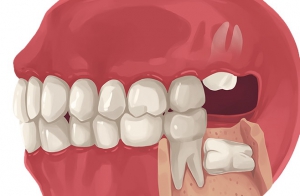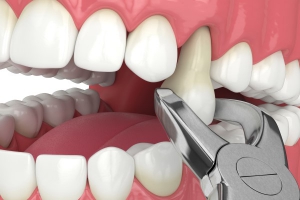Tooth Extraction: Cost, Procedure, Risks, and Recovery
Dentists in the world know the importance of oral health and teeth. Teeth play an important role in chewing and swallowing, and a healthy mouth is essential for oral health. However, teeth can eventually become too big or misshapen to function correctly. This is when tooth extraction surgery comes into play – a procedure often needed as a last resort. Here, the dentist will remove the tooth(s) from your mouth using various techniques and equipment. Tooth extraction costs vary depending on the type of tooth extraction procedure being done and the location of the teeth that need to be removed. Dental extraction surgery carries some risks, such as pain and bleeding, but most patients report satisfactory postoperative recoveries. So if you’re ever considering undergoing tooth extraction surgery, read up on all the details first!
Why are teeth removed?
 There are a number of reasons why teeth are removed. The most common causes include tooth decay, gum disease, and trauma. When deciding which teeth to remove, it’s essential to consider the procedure type and the tooth’s location. Many different types of teeth removal procedures are available, so it’s necessary to find the right one for you. In addition, the cost of extraction varies depending on the procedure performed and where the tooth is located. Finally, the recovery time following surgery is usually short but may involve some pain relief medications or antibiotics. So, if you’re considering getting your teeth removed, consult your dentist to find the best option for you.
There are a number of reasons why teeth are removed. The most common causes include tooth decay, gum disease, and trauma. When deciding which teeth to remove, it’s essential to consider the procedure type and the tooth’s location. Many different types of teeth removal procedures are available, so it’s necessary to find the right one for you. In addition, the cost of extraction varies depending on the procedure performed and where the tooth is located. Finally, the recovery time following surgery is usually short but may involve some pain relief medications or antibiotics. So, if you’re considering getting your teeth removed, consult your dentist to find the best option for you.
How much does a tooth extraction cost?
Tooth extraction can be an extremely costly and time-consuming procedure. Depending on the type of extraction and location, the cost can range from a few hundred to several thousand dollars. In addition, several risks are associated with tooth extraction, including infection and damage to surrounding teeth. Recovery time following a tooth extraction is typically about one week but can range widely depending on the individual’s medical history and recovery protocol. Therefore, it’s essential to consult a dentist before any dental procedure to understand all the costs and potential complications involved. So, whether you’re looking to remove a tooth or get an idea of the cost, dental extraction is a necessary procedure to consider.
How to prepare for a tooth extraction
Tooth extraction is a necessary procedure that can help relieve pain and discomfort caused by toothache. The cost of the surgery will depend on the severity of the toothache and the type of extraction required. This process is usually done under local sedation, so you’ll feel mild pain during and after the procedure. There are risks connected with any surgery, but they’re generally minor compared to other dental procedures. If Post-Op Pain (POP) is usually mild and decreases over time, take the recommended painkillers and rest as much as possible. Also, be sure to keep an eye on the patient’s oral hygiene following the extraction, as poor oral hygiene can lead to tooth decay and gum disease.
What is the procedure for a tooth extraction?
 Teeth extraction is an often-needed procedure that can be unpleasant but is generally painless and short-term. The most common extraction procedure is aincialgiaectomy, or “snipping.” This involves cutting the gum around the tooth and removing it with a surgical or dental instrument. Several risks are associated with this procedure, but they’re generally mild and short-term. For example, the gum may bleed, and swelling may occur in the area the tooth was removed from. However, most patients report mild pain and discomfort at first and then an ongoing sense of relief once the extraction is complete. Recovery from the extraction typically takes two to four days and may involve some discomfort initially but should dissipate quickly.
Teeth extraction is an often-needed procedure that can be unpleasant but is generally painless and short-term. The most common extraction procedure is aincialgiaectomy, or “snipping.” This involves cutting the gum around the tooth and removing it with a surgical or dental instrument. Several risks are associated with this procedure, but they’re generally mild and short-term. For example, the gum may bleed, and swelling may occur in the area the tooth was removed from. However, most patients report mild pain and discomfort at first and then an ongoing sense of relief once the extraction is complete. Recovery from the extraction typically takes two to four days and may involve some discomfort initially but should dissipate quickly.
Simple extraction
If you’re in the market for a dentist, extraction is one of the most common procedures that they perform. There are many different types of extractions, but the general process remains unchanged; the dentist will anesthetize you by giving you a local anesthetic and then use a unique tool to remove your tooth. Generally speaking, extraction is painless, but there may be some discomfort during and after the procedure. However, recovery time can usually be brief, and most people can resume their normal activities within a few hours of the extraction procedure.
Surgical extraction
A surgical extraction is a simple and painless procedure that can remove a tooth, including the biting and chewing muscles. It starts by numbing the area around the tooth with an injection. A unique tool then removes the tooth without any pain or discomfort. Recovery time is usually short, and most people can resume their normal activities within days of surgery.
What are the risks of a tooth extraction?
Tooth extraction is a standard procedure many of us will go through at some point in our lives. However, it’s essential to be aware of the risks and understand what they entail before deciding to do one. Some of the most common risks include infection and pain, which can significantly impact the quality of your life. The cost of the procedure also varies greatly depending on the extraction’s complexity and the number of teeth that need to be removed. If a tooth is impacted or requires more than one extraction, the recovery process will be more prolonged and painful. Always speak to your dentist about any concerns before extraction is done!
What is the recovery period from a tooth extraction?
If you want a tooth extraction, be aware of the risks and recovery time involved. There is usually a short period of discomfort and swelling following the procedure, though it can vary depending on the individual. As with any medical procedure, discussing the risks and benefits of a tooth extraction with your dentist before making an appointment is essential. Some common risks associated with tooth extractions include infection, nerve damage, and more severe complications such as abscesses or jawbone failure. If there is any difficulty, seek medical attention as soon as possible. Recovery time typically follows typical steps such as taking pain medication and drinking plenty of fluids to ease soreness and swelling. Make the process as easy and painless as possible by scheduling an appointment with a dentist you trust.
Does Tooth Extraction Hurt?
 There’s no mistaking the discomfort that tooth extraction can cause. But contrary to popular belief, tooth extraction doesn’t always hurt. The most common way to extract teeth is by using local anesthesia, which numbs the extracted area. After the tooth has been anesthetized, the surgeon will make an incision and remove the tooth within minutes. Minor pain and swelling may occur following surgery but should resolve quickly with proper rest and healing. So next time you’re considering tooth extraction, don’t be afraid to ask your dentist about the option of local anesthesia. You might be pleasantly surprised at the results!
There’s no mistaking the discomfort that tooth extraction can cause. But contrary to popular belief, tooth extraction doesn’t always hurt. The most common way to extract teeth is by using local anesthesia, which numbs the extracted area. After the tooth has been anesthetized, the surgeon will make an incision and remove the tooth within minutes. Minor pain and swelling may occur following surgery but should resolve quickly with proper rest and healing. So next time you’re considering tooth extraction, don’t be afraid to ask your dentist about the option of local anesthesia. You might be pleasantly surprised at the results!
Frequently Asked Questions
How long does it take to recover from a tooth extraction?
It takes around two weeks for the average person to recover from a tooth extraction. However, this is different for everyone since everyone’s body heals and recovers differently. Some people may feel discomfort and headaches for a few days after the extraction. Still, most people experience mild pain and headaches that last for a few days post-op. During recovery, eat healthy foods and drink plenty of fluids to help your body heal faster. Also, keep an eye on your teeth’ healing by visiting your dentist regularly.
Is a tooth extraction painful?
When it comes to tooth extraction pain, most people would say that it is generally moderately painful. However, this depends on the individual’s pain threshold. The procedure usually takes around 45 minutes, and most patients feel relief within a few hours. However, some patients may experience mild pain and swelling for a couple of days after the extraction, but it subsides rapidly. In rare cases, tooth extractions carry some risks like infection, fracture, or tooth loss. However, with proper postoperative care, you can avoid these complications.
How much does the extraction of teeth cost?
The extraction of teeth cost depends on the location, the number of teeth extracted, and the dental professionals involved. Upper or lower tooth extraction (including wisdom teeth extraction) is usually around $1,000 to $2,500+. There are a few risks involved with extraction, such as bleeding and infection, but these can be manageable if you follow the doctor’s instructions. Recovery is typically fast, but there may be discomfort and swelling in the area for a few days.
How serious is a tooth extraction?
Tooth extraction is a surgery that will require you to stay overnight in the hospital. The surgery typically takes one to two hours, and the patient may experience some pain after the procedure. Three primary risks are associated with tooth extractions: bleeding, infection, and nerve damage. Recovery time for tooth extraction is usually around six weeks but can extend up to 12 weeks.
What is the procedure for tooth extraction?
Tooth extraction is the removal of a tooth by a dental professional. The procedure usually takes about an hour and can be done under local or general anesthesia. There are various types of extractions, such as single-tooth extraction, multiple tooth extractions at once (multirotoextraction), and nerve transfer surgery. The most common risk factors for complications during tooth extraction include the following:
- Age.
- Poor oral hygiene habits.
- Tobacco use/nicotine abuse.
- Diabetes mellitus.
- Bruxism (grinding your teeth).
Conclusion
If you want teeth removed, you’ve come to the right place! This blog will cover all the essential details about tooth extraction, from the cost and procedure to the risks and recovery period. So make sure to read through the article completely to get an overview of everything you need to know before making your decision. We hope this guide will help you make an informed choice about tooth extraction and enable you to have a trouble-free extraction process!



